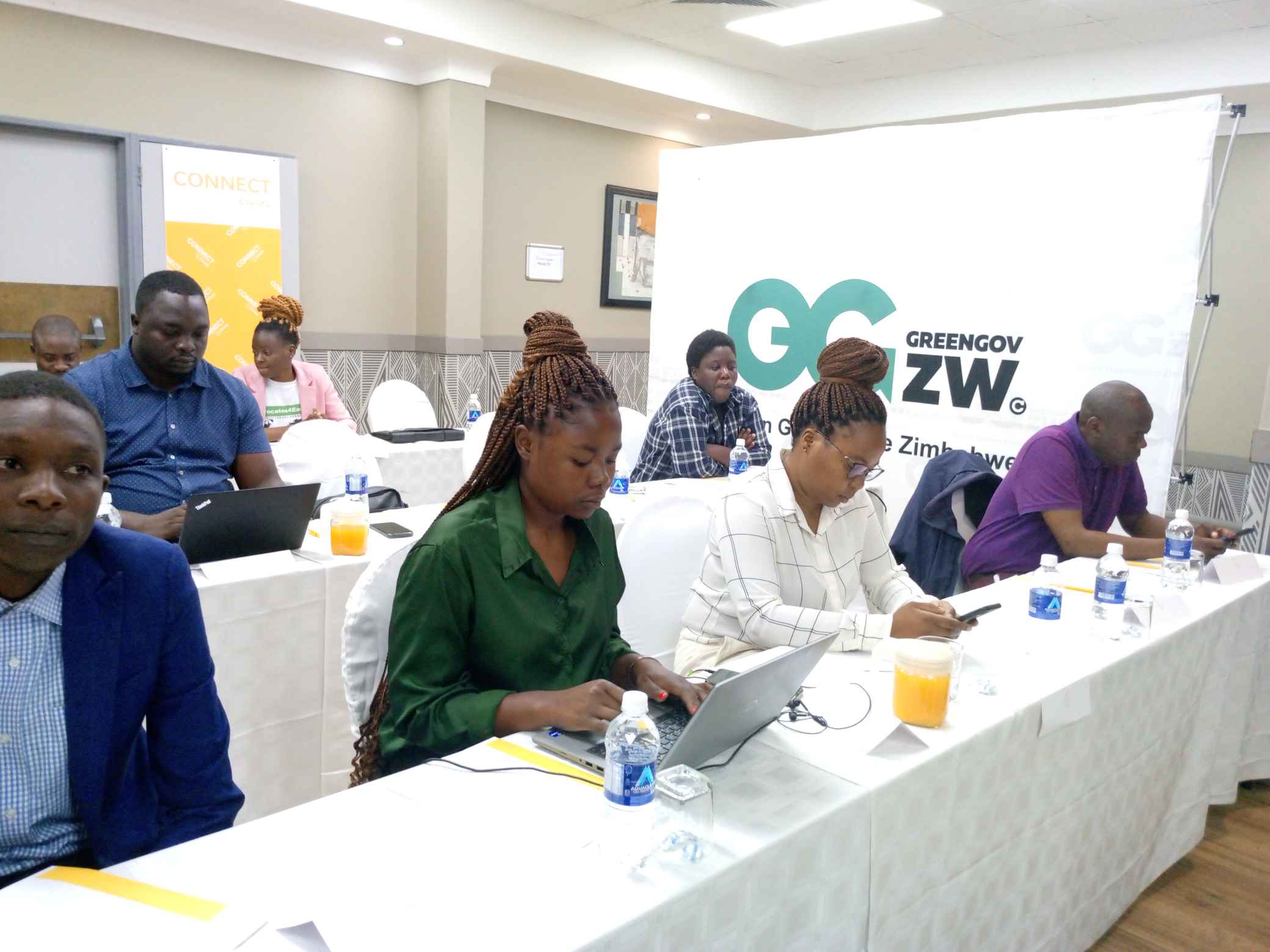|
Getting your Trinity Audio player ready…
|
The Green Governance Zimbabwe Trust is spearheading a platform allowing dialogue, information sharing, engagement, and identification of solutions to climate governance and just energy transition in the country while promoting movement building and improving coordination and consolidated advocacy on climate issues by various actors.
This emerged at the National Youth and Climate Change Action Symposium in Harare which brought together various stakeholders to discuss the issues.
Addressing delegates, Mr. Sydney Chisi, the Executive Director of Reyna Trust focused on climate justice advocacy, said climate change manifests in different forms, affecting communities differently for various reasons, including but not limited to gender, age, physical abilities, social classes, etcetera.
“In Zimbabwe, climate change has without doubt manifested in various forms such as Tropical Storms, flash floods, heatwaves, and excessive droughts. It has already threatened to derail developmental plans, and gains and impose further economic costs and social disruption with adaptation and resilience building projected to be costly for Zimbabwe’s already crippled economy which is marred by mismanagement of public funds, skewed priorities, debt burden and over-reliance on foreign aid.
“In Zimbabwe, lack of access to affordable, clean and modern energy has disproportionately negative impacts on the lives and livelihoods of low-income families, while also contributing to Climate Change as communities resort to either wood fuel or coal for both heating and lighting. This is despite the fact that Zimbabwe is rich in transitional minerals which if effectively taken advantage of can be a sustainable green solution towards the transition to renewable energy,” Mr. Chisi said.
Hilton Chingosho, Energy and Power Engineer and Lecturer at the University of Zimbabwe said in the country, clean energy projects represent billions for Zimbabwe’s income generation.
He said Zimbabwe is one of the key countries that have mineral deposits of transitional minerals such as lithium (Zimbabwe holds Africa’s largest lithium reserves, the fifth-largest globally), Nickel, and copper (in Zimbabwe there are over 70 copper deposits).
Over the last few months news about how more than 5 000 artisanal miners and buyers, including foreigners, mainly of Chinese origin, have descended on Sandawana Mine in Mberengwa to extract and buy lithium illegally was being reported. The extraction of lithium at Sandawana Mine in Mberengwa like most mining activities in Zimbabwe has been without doubt unsafe and fails to support the sustainable extraction and processing of minerals and metals, while contributing to environmental, climate, and disaster risks and does not ensure that social and economic benefits trickle down to communities.
Mr. Farai Mutondoro from the Africa Institute of Environmental Law, in his presentation titled ‘Understanding Role of critical minerals in Energy Transition’ said Zimbabwe needs a Just Energy Transition process that benefits and includes communities.
“Tackling climate change requires a profound societal transformation that is human-centred, safeguards the rights of the most vulnerable people, and also the sharing of burdens and benefits of climate change and its impacts equitably and fairly which is the key cog of the Just Energy Transition,” Mr. Mutondoro said.
Through the implementation of the Climate Media Collaborative for Economic Justice and Community Rights project which Green Governance Zimbabwe Trust (GGTZ) is implementing in Zimbabwe in partnership with Oxfam in Southern Africa and Magamba Trust, GGZT is exploring and unpacking the just energy transition for adaptation and climate Justice.
The project seeks to recognise local knowledge and capacity, and scaling- up what is already working through supporting community rights, shift economic narratives away from extractives and dirty development, and strengthen global climate action to create real and measurable improvements by facilitating the inclusion of marginalised communities.
Mr. Frank Mpahlo, the GGZT Director said his organisation plays a role in developing responsive, broad-based, informative, and mixed media communications products to support campaigns and target urban, semi-urban, and rural communities so that messages on climate issues inspire action in both mining-impacted communities and among mining powerbrokers and economic elites.
Thus, the National Climate Movement Symposium seeks to promote movement building and improve coordination and consolidated advocacy on just energy transition and climate issues by various actors and to facilitate the inclusion of marginalised communities in Climate Change dialogue. The symposium is also a platform to build strong alliances among CSOs, journalists, and climate influencers,” Mr. Mpahlo said.
Environmentalist Natalie Gwatirisa, in her presentation titled ‘Locating the Voices of Youth in the Climate Change Discourse’ said in pursuit of attaining sustainable development goals (SDGs) and positive youth development, there is a need for Meaningful youth voices can address climate change.
“There is a need for different approaches to address climate change. There is a need for multiple stakeholders in addressing climate change. Young people should be part of polity – part of the power dynamics. Young people should influence policies around climate change. There are mechanisms for their participation in climate change governance as diplomats, and climate change negotiators at the community, provincial and national levels.
“What does it mean for young people to be part of the decision-making process? It means we should involve them to set the agenda, implement and monitor processes of climate change. This involves radical youth narratives, and the need to share power in youth-adult partnerships in decision-making processes. We also need to have youth delegates to represent Zimbabwe at COPs. The youth are becoming diplomats, and advocates in climate change negotiations even at high fora like the UNFCCC,” Gwatirisa said.
Mr. Trust Nhubu, in his presentation titled “Just Energy Transitions – Waste to Energy” provided ways of properly disposing of solid waste as a way of limiting greenhouse gas emissions. He said to achieve this, there is a need for financial support; expertise; technology development; and a conducive legislative and policy framework as well as the involvement of key stakeholders in the process.
